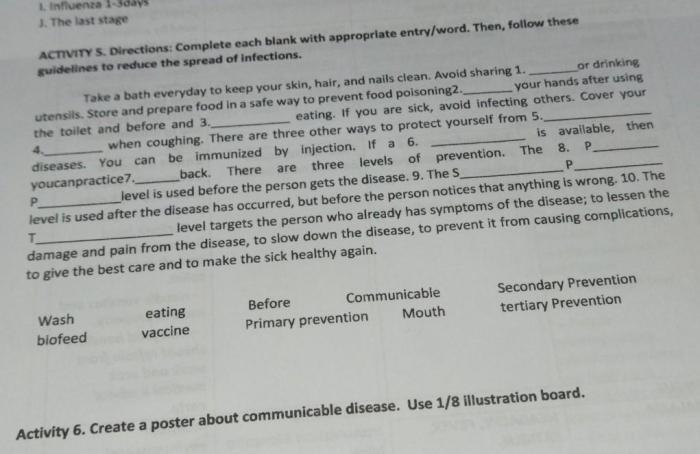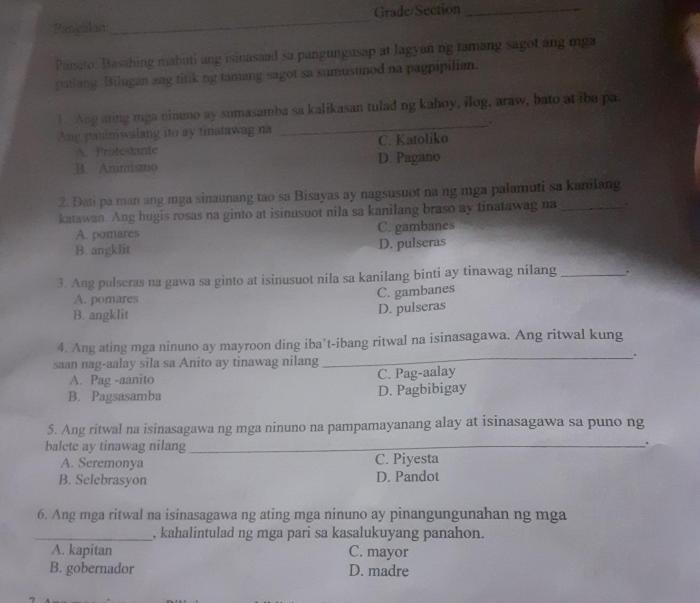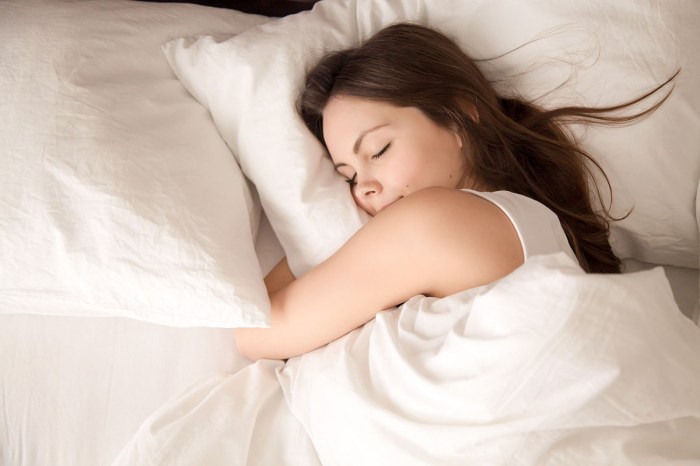Need those zzzs answer key – Need those zzzs? Unlock the secrets to a restful night’s sleep with our comprehensive guide, your answer key to achieving those elusive hours of slumber. Dive into the world of sleep, where we’ll explore the factors that affect your precious shut-eye and provide practical tips to help you drift off into dreamland.
From understanding the optimal sleep duration for your age to creating an ideal sleep environment, we’ve got you covered. Discover the impact of caffeine, alcohol, and stress on your sleep, and learn how to establish healthy sleep hygiene practices. Whether you’re struggling with sleep disorders or simply want to improve your sleep quality, this guide will empower you with the knowledge and tools you need to unlock the power of a good night’s rest.
Sleep Duration and Quality

Sleep is essential for our physical and mental well-being. Getting the right amount of sleep can help us improve our mood, boost our energy levels, and improve our overall health. Sleep deprivation, on the other hand, can have serious consequences for our health, including an increased risk of obesity, heart disease, and diabetes.
The recommended hours of sleep for different age groups are as follows:
- Newborns (0-3 months): 14-17 hours
- Infants (4-11 months): 12-15 hours
- Toddlers (1-2 years): 11-14 hours
- Preschoolers (3-5 years): 10-13 hours
- School-aged children (6-13 years): 9-11 hours
- Teenagers (14-17 years): 8-10 hours
- Adults (18-64 years): 7-9 hours
- Older adults (65+ years): 7-8 hours
It is important to note that these are just general guidelines. The amount of sleep you need may vary depending on your individual needs. If you are consistently feeling tired or having difficulty functioning during the day, you may need to get more sleep.
Consistent Sleep Schedules and Bedtime Routines
In addition to getting the right amount of sleep, it is also important to have a consistent sleep schedule and bedtime routine. This will help your body to get used to a regular sleep-wake cycle, which can make it easier to fall asleep and wake up at the same time each day.
A good bedtime routine should include:
- Going to bed and waking up at the same time each day, even on weekends
- Creating a relaxing environment in your bedroom, such as by making sure it is dark, quiet, and cool
- Avoiding caffeine and alcohol before bed
- Getting regular exercise, but not too close to bedtime
- Taking a warm bath or reading a book before bed
By following these tips, you can improve the quality of your sleep and get the rest you need to stay healthy and productive.
Factors Affecting Sleep

Sleep is a complex process that can be affected by a variety of factors. Some of the most common sleep disorders include insomnia, sleep apnea, and restless legs syndrome. Insomnia is characterized by difficulty falling or staying asleep, while sleep apnea is a condition in which breathing repeatedly stops and starts during sleep.
To crack the “need those zzzs” answer key, you’ll need to stay sharp. Check out the fascinating Ravens Quest: Art of Zoo exhibition for inspiration. The stunning artwork and engaging stories will invigorate your mind, helping you solve those tricky puzzles and unlock the “need those zzzs” answer key.
Restless legs syndrome is a condition that causes an uncomfortable urge to move the legs, often accompanied by a crawling or tingling sensation.These sleep disorders can be caused by a variety of factors, including genetics, medical conditions, and lifestyle choices.
For example, insomnia can be caused by stress, anxiety, depression, or certain medications. Sleep apnea can be caused by obesity, smoking, or alcohol use. Restless legs syndrome can be caused by iron deficiency, pregnancy, or certain medications.In addition to sleep disorders, there are a number of other factors that can affect sleep quality.
These include caffeine, alcohol, and nicotine. Caffeine is a stimulant that can interfere with sleep, especially if consumed close to bedtime. Alcohol can also disrupt sleep, as it can cause dehydration and lead to fragmented sleep. Nicotine is another stimulant that can interfere with sleep.Stress,
anxiety, and depression can also have a negative impact on sleep. Stress can lead to difficulty falling or staying asleep, while anxiety can cause nightmares or night terrors. Depression can also lead to insomnia or hypersomnia, which is excessive sleepiness.
Sleep Environment

Creating an optimal sleep environment is crucial for restful and rejuvenating sleep. Here are some guidelines to help you establish a conducive sleep space:
Temperature:The ideal sleep temperature is between 60-67°F (15.6-19.4°C). A cool room helps the body regulate its temperature and promotes relaxation.
Darkness:Darkness signals the body to produce melatonin, the sleep-promoting hormone. Use blackout curtains or blinds to block out light from outside sources.
Noise:Noise can disrupt sleep. Consider using a white noise machine, earplugs, or a sleep mask to minimize distractions.
Benefits of Blackout Curtains, White Noise Machines, and Sleep Masks
These tools can enhance the sleep environment by:
- Blackout curtains:Blocking light promotes melatonin production and reduces sleep disturbances.
- White noise machines:Masking outside noises helps create a relaxing and sleep-conducive atmosphere.
- Sleep masks:Covering the eyes blocks light and provides a sense of darkness, promoting relaxation and sleep.
Importance of a Comfortable Bed and Bedding
A comfortable bed and bedding provide support and relaxation for the body. Consider the following:
- Mattress:Choose a mattress that provides adequate support and comfort. Consider your sleeping position and body type.
- Pillows:Pillows should support the head and neck, keeping the spine in alignment. Choose pillows that are firm enough to provide support but soft enough to be comfortable.
- Bedding:Breathable fabrics like cotton or linen help regulate body temperature and prevent overheating.
Sleep Hygiene Practices

Sleep hygiene practices are essential for promoting restful and restorative sleep. Establishing a regular sleep-wake cycle, avoiding screen time before bed, and creating a relaxing bedtime routine are key components of good sleep hygiene.
Establishing a Regular Sleep-Wake Cycle
Maintaining a consistent sleep schedule, even on weekends, helps regulate the body’s natural sleep-wake cycle. This means going to bed and waking up around the same time each day, regardless of the day of the week. Over time, this helps the body to fall asleep and wake up more easily at the desired times.
Avoiding Screen Time Before Bed
The blue light emitted from electronic devices, such as smartphones, tablets, and laptops, can interfere with the production of melatonin, a hormone that promotes sleep. Exposure to blue light before bed can make it harder to fall asleep and stay asleep.
Creating a Relaxing Bedtime Routine, Need those zzzs answer key
A relaxing bedtime routine can help signal to the body that it’s time to sleep. This routine may include activities such as taking a warm bath, reading a book, or listening to calming music. It’s important to avoid activities that are stimulating or stressful, such as watching TV or working on a computer.
Sleep Aids

Sleep aids are substances or treatments used to promote sleep. They can be over-the-counter (OTC) medications, prescription medications, or natural remedies.
OTC sleep aids include antihistamines, such as diphenhydramine (Benadryl) and doxylamine (Unisom), and sedatives, such as zolpidem (Ambien) and zaleplon (Sonata). These medications can cause side effects such as drowsiness, dizziness, and impaired coordination.
Prescription Sleep Medications
Prescription sleep medications are typically used for short-term treatment of insomnia. They include benzodiazepines, such as lorazepam (Ativan) and alprazolam (Xanax), and non-benzodiazepine sedatives, such as zolpidem (Ambien) and zaleplon (Sonata). These medications can be effective in promoting sleep, but they can also cause side effects such as drowsiness, dizziness, and impaired coordination.
Natural Sleep Remedies
Natural sleep remedies include melatonin, valerian root, and chamomile. Melatonin is a hormone that helps regulate the body’s sleep-wake cycle. Valerian root is an herb that has been used for centuries to promote sleep. Chamomile is an herb that has calming effects.
Natural sleep remedies are generally considered safe, but they can cause side effects such as drowsiness, dizziness, and nausea.
Technology and Sleep: Need Those Zzzs Answer Key
Technology has become an integral part of our lives, but it can also have a significant impact on our sleep. One of the most important things to be aware of is the impact of blue light from electronic devices.
Blue light is a type of light that is emitted by electronic devices such as smartphones, tablets, and computers. This light has been shown to suppress the production of melatonin, a hormone that helps us to fall asleep. When we are exposed to blue light before bed, it can make it more difficult to fall asleep and stay asleep.
Tips for Reducing Screen Time Exposure Before Bed
There are a number of things you can do to reduce your exposure to blue light before bed:
- Avoid using electronic devices in the hour before bed.
- If you must use electronic devices before bed, use a blue light filter or wear blue light blocking glasses.
- Make sure your bedroom is dark, quiet, and cool.
Sleep-Tracking Apps and Devices
Sleep-tracking apps and devices can be a helpful way to monitor your sleep patterns and identify any potential problems. These devices can track your sleep duration, quality, and efficiency. They can also provide you with feedback on your sleep habits and offer suggestions for improvement.
Sleep and Health Conditions

Sleep plays a crucial role in maintaining overall health and well-being. It is closely linked to chronic diseases and mental health conditions.Sleep disturbances are common in individuals with chronic diseases such as heart disease and diabetes. Poor sleep can worsen disease symptoms, increase the risk of complications, and hinder recovery.
For instance, sleep apnea, a disorder characterized by interrupted breathing during sleep, is associated with an increased risk of heart attacks and strokes.Sleep disorders can also significantly impact mental health. Insomnia, difficulty falling or staying asleep, is a common symptom of depression and anxiety.
Sleep disturbances can worsen mood symptoms, making it harder to manage these conditions.
Managing Sleep Disturbances Associated with Health Conditions
Managing sleep disturbances associated with health conditions requires a multifaceted approach:*
-*Address underlying medical conditions
Treating the underlying health condition can often improve sleep quality.
-
-*Implement sleep hygiene practices
Establishing regular sleep-wake cycles, creating a relaxing bedtime routine, and avoiding caffeine and alcohol before bed can promote better sleep.
-*Consider cognitive-behavioral therapy for insomnia (CBT-I)
CBT-I is a type of therapy that helps individuals identify and change negative thoughts and behaviors that interfere with sleep.
-*Explore medication options
In some cases, medication may be necessary to improve sleep quality. However, it is important to consult with a healthcare professional before taking any sleep aids.
Commonly Asked Questions
What are the recommended hours of sleep for adults?
Most adults need around 7-9 hours of sleep per night for optimal health and well-being.
How can I create an optimal sleep environment?
Establish a consistent sleep schedule, make sure your bedroom is dark, quiet, and cool, and avoid using electronic devices before bed.
What are some common sleep disorders?
Insomnia, sleep apnea, and restless legs syndrome are some of the most common sleep disorders.
Can caffeine and alcohol affect my sleep?
Yes, caffeine and alcohol can disrupt your sleep. Caffeine can keep you awake, while alcohol can interfere with the quality of your sleep.